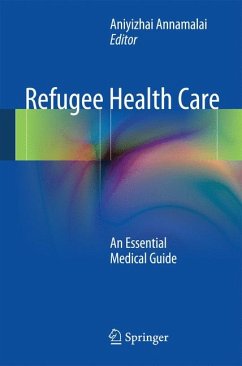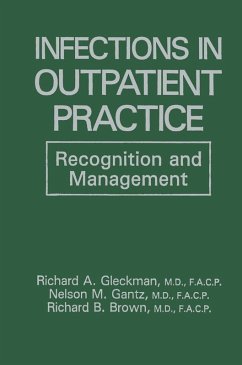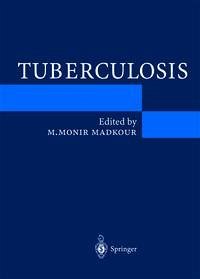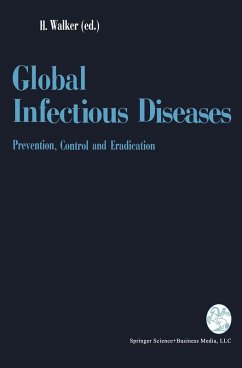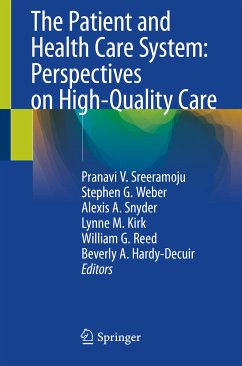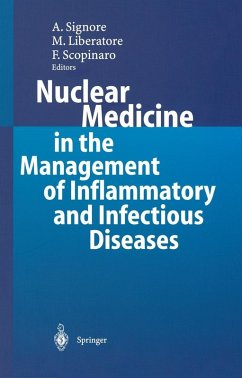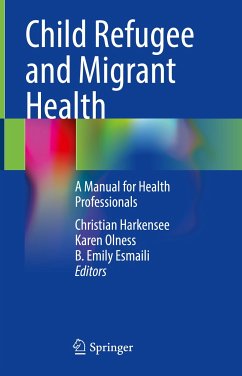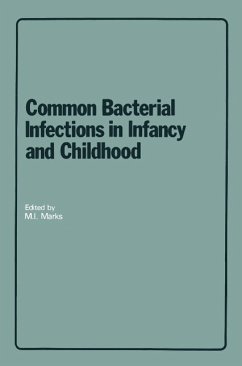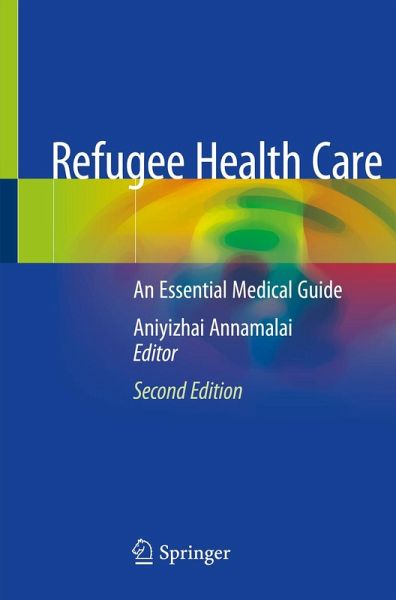
Refugee Health Care (eBook, PDF)
An Essential Medical Guide
Redaktion: Annamalai, Aniyizhai
Versandkostenfrei!
Sofort per Download lieferbar
80,95 €
inkl. MwSt.
Weitere Ausgaben:

PAYBACK Punkte
40 °P sammeln!
Refugee health is growing as an academic medical discipline. More and more health care providers are coming together to exchange research information, educational curricula and social policies related to refugee health. The number of practitioners attending the annual North American Refugee Healthcare Conference has doubled since 2014.Refugees arrive in the United States from different parts of the world. Refugees undergo a medical screening soon after arrival, as recommended by the U.S. Department of State, and it is usually primary care practitioners who usually evaluate these patients at th...
Refugee health is growing as an academic medical discipline. More and more health care providers are coming together to exchange research information, educational curricula and social policies related to refugee health. The number of practitioners attending the annual North American Refugee Healthcare Conference has doubled since 2014.
Refugees arrive in the United States from different parts of the world. Refugees undergo a medical screening soon after arrival, as recommended by the U.S. Department of State, and it is usually primary care practitioners who usually evaluate these patients at this first visit. Psychiatrists and other specialists may also evaluate them soon after arrival.Though physicians receive a variable amount of training in cross-cultural medicine, virtually none is in the area of refugee evaluations.
There are several major ways that the field has changed. U.S. refugee policies and refugee admission numbers have changed dramatically in the past four years as has the epidemiology of medical conditions because the demographics of refugees have changed. The CDC guidelines for domestic screening have also been modified significantly as some of the screening tests are no longer recommended. Protocols have also been updated for presumptive treatment received by refugees before departure to the United States of other countries. A new chapter on end of life care for refugees has been added to the book.
Now fully revised and expanded, this second edition reflects the many changes that have occurred in the field of refugee health since 2014. Refugee Health Care remains the definitive resource for primary care physicians and mental health practitioners who see and evaluate refugees. It is also relevant for medical, nursing and public health students involved with refugee health as well as resettlement agency workers and public health officials overseeing refugee care
Refugees arrive in the United States from different parts of the world. Refugees undergo a medical screening soon after arrival, as recommended by the U.S. Department of State, and it is usually primary care practitioners who usually evaluate these patients at this first visit. Psychiatrists and other specialists may also evaluate them soon after arrival.Though physicians receive a variable amount of training in cross-cultural medicine, virtually none is in the area of refugee evaluations.
There are several major ways that the field has changed. U.S. refugee policies and refugee admission numbers have changed dramatically in the past four years as has the epidemiology of medical conditions because the demographics of refugees have changed. The CDC guidelines for domestic screening have also been modified significantly as some of the screening tests are no longer recommended. Protocols have also been updated for presumptive treatment received by refugees before departure to the United States of other countries. A new chapter on end of life care for refugees has been added to the book.
Now fully revised and expanded, this second edition reflects the many changes that have occurred in the field of refugee health since 2014. Refugee Health Care remains the definitive resource for primary care physicians and mental health practitioners who see and evaluate refugees. It is also relevant for medical, nursing and public health students involved with refugee health as well as resettlement agency workers and public health officials overseeing refugee care
Dieser Download kann aus rechtlichen Gründen nur mit Rechnungsadresse in A, B, BG, CY, CZ, D, DK, EW, E, FIN, F, GR, HR, H, IRL, I, LT, L, LR, M, NL, PL, P, R, S, SLO, SK ausgeliefert werden.



